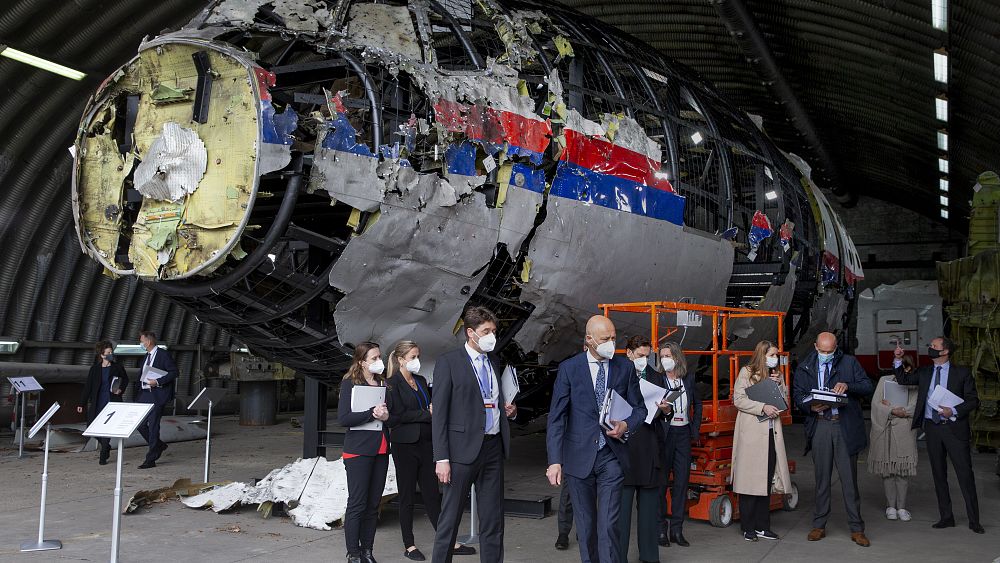A Dutch court began hearing evidence this week in the trial of three Russians and a Ukrainian charged in the 2014 downing of Malaysia Airlines Flight MH17.
The trial formally started in March last year but had so far focused on legal arguments about the admissibility of evidence.
“The court will open the MH17 criminal trial proper and, through examining and discussing the content of the prosecution file, elucidate the key questions which it has already begun to address,” the court said in a statement.
“Was flight MH17 shot down by a Buk missile? Was a Buk missile fired from an agricultural field near Pervomaiskyi? Did the accused play a role in this?” the statement went on.
After a years-long international investigation, prosecutors named four suspects: Russians Igor Girkin, Sergey Dubinskiy and Oleg Pulatov, and Ukrainian Leonid Kharchenko.
The first discussions of evidence are scheduled for Tuesday.
The four defendants, none of whom has surrendered to face justice, are accused of involvement in the attack and the murder of all the 298 passengers and crew on flight MH17.
Only Pulatov is represented at the trial by lawyers. He has denied involvement. All face life sentences.
Presiding Judge Hendrik Steenhuis said at the start of Monday’s hearing that “the file consists of about 65,000 pages and many hundreds of hours of visual and audio material. It’s such a large case that it’s simply not possible to speak about every detail.”
“Up until today, no one has come forward and said that they are even partially responsible for what happened,” he added.
The plane was blown out of the sky on July 17, 2014, by what an international investigation and a separate Dutch crash probe concluded was a Buk missile.
The left side of the cockpit was badly damaged by what prosecutors say was a missile fired by pro-Russian separatist rebels. Prosecutors say the Buk missile was trucked into Ukraine from a Russian military base.
Russia denies any involvement in the plane’s downing, which happened during the conflict between separatists and Ukrainian government forces in the country’s east.
Steenhuis warned relatives that the coming days could be tough as he outlines evidence about the deaths of their loved ones.
“Unpleasant findings may be discussed,” he said before telling people in the courtroom: “Should this become too much for you, you are at liberty to leave the room at any point in time.”
Last month, judges and lawyers visited for the first time the wreckage of the plane at a Dutch military airbase.
“As painful as it is to see the aeroplane, it is good that you are here, that your court sees for itself the material damage done to the plane,” a lawyer for the families of the victims said.
The judge said the aim of the visit was to allow the court to make observations “that at a later stage can be used as probative or exculpatory evidence.”
The hearings will continue until July 9. Relatives of the victims will be able to address the court in September while the trial is expected to continue into 2022.







